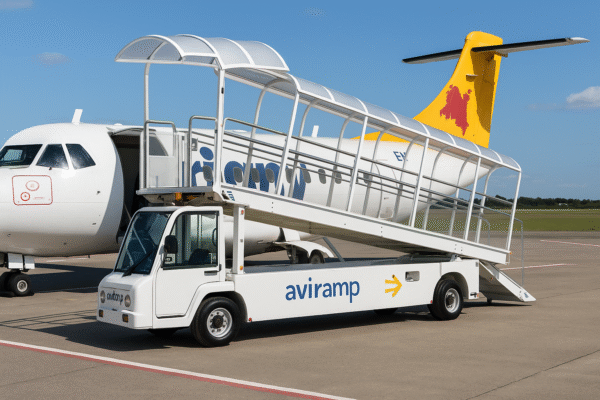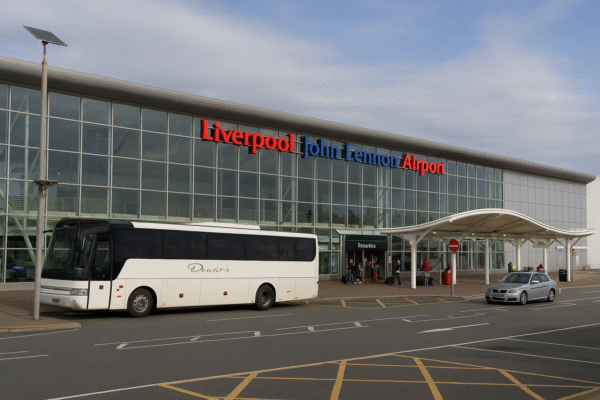Liverpool John Lennon Airport has taken the aviation industry by surprise, emerging as the UK’s top-performing airport in the newly released 2025 AirHelp Score global rankings. Surpassing industry giants such as Heathrow and Gatwick, the Liverpool-based regional airport claimed the national spotlight with a world ranking of 35 out of 250 international airports—an unprecedented feat for a facility of its size.
The AirHelp Score, a respected annual evaluation of global airport performance, assessed terminals across 68 countries based on punctuality, passenger service, and airport amenities, including dining and shopping options. Liverpool John Lennon Airport achieved superior scores across all categories, confirming its growing reputation for efficient operations and customer-centric service.
Small Airport, Big Victory
The Liverpool John Lennon Airport’s victory is seen as a benchmark for UK airport performance. While major hubs like Heathrow (ranked 178th) and Gatwick (235th) struggled amid staffing shortages and operational disruptions in 2025, Liverpool soared ahead with on-time departures, smooth check-in procedures, and high passenger satisfaction ratings.
Passengers frequently highlighted Liverpool’s manageable terminal size and shorter queue times as significant advantages. The airport’s streamlined operations helped maintain reliability during busy travel periods, giving passengers a seamless and less stressful travel experience.
“It’s clear that size doesn’t always equal quality,” said one aviation analyst. “Liverpool has shown that passenger experience and operational efficiency can be achieved without the vast complexity of a mega-hub.”
Major UK Airports Falter in Global Rankings
By contrast, Heathrow and Gatwick Airports—traditionally considered the UK’s primary international gateways—experienced a turbulent year. From a power substation failure at Heathrow in mid-2025 to prolonged industrial strikes impacting baggage handling and security staff, both airports were plagued by disruptions that impacted flight punctuality and traveler satisfaction.
As a result, passenger complaints surged. Reports cited long queues at security, delayed baggage retrieval, and frequent flight delays, significantly affecting their AirHelp Score. Even other prominent UK airports, including Manchester and Birmingham, fared poorly, ranking 214th and 220th respectively.
These results mark a turning point in the UK’s airport landscape, highlighting a shift in traveler priorities away from large-scale infrastructure toward more dependable and convenient service delivery.
What Is the AirHelp Score and Why Does It Matter?
The AirHelp Score, launched in 2015, has become one of the most influential benchmarking tools in the aviation sector. Airports are evaluated on three core performance areas:
- On-Time Performance (OTP) – Measures flight punctuality.
- Customer Service – Based on traveler reviews and satisfaction levels.
- Food and Shops – Evaluates variety, quality, and availability of airport amenities.
In 2025, Cape Town International Airport in South Africa claimed the global top spot, followed closely by Doha Hamad International and Riyadh King Khalid. These airports stood out for maintaining world-class service standards even during peak seasons.
The inclusion of Liverpool in the top 40 globally affirms its rise as a global contender in the aviation space, validating years of investment in infrastructure upgrades, staff training, and customer experience enhancements.
A Reflection of Changing Passenger Expectations
The triumph of Liverpool John Lennon Airport reflects broader changes in consumer behavior in air travel. As travel resumes post-pandemic and passenger volumes return to pre-2020 levels, fliers are prioritizing efficiency, reliability, and comfort over grandeur.
UK travelers have become increasingly vocal about airport service levels, with social media and digital review platforms amplifying poor experiences. In this context, Liverpool’s focus on personalized service, quick security checks, and reliable scheduling has become a model for the rest of the industry.
Moreover, government-backed regional airport initiatives—such as improving local connectivity and easing congestion at major hubs—have encouraged passengers to consider alternatives to traditional international airports. The success of Liverpool could provide momentum for airports in Bristol, Leeds, and Newcastle to follow suit.
The Road Ahead for UK Airports
Liverpool’s recognition in the 2025 AirHelp Score is not only a win for the airport but a wake-up call for the UK’s aviation sector. With an increasing number of travelers demanding more streamlined and stress-free experiences, major airports must re-evaluate their service models.
Improving on-time performance, investing in customer service training, and addressing infrastructure bottlenecks are critical if Heathrow, Gatwick, and others hope to reclaim their reputations. The future of UK aviation lies in quality, not quantity—a fact that Liverpool has embraced with remarkable results.
For travelers planning future trips, especially during busy holiday periods, smaller regional airports like Liverpool are proving to be smarter, smoother alternatives. And as UK aviation continues to evolve, AirHelp’s rankings serve as a valuable tool to guide passenger decisions based on real-world performance data.
For more travel news like this, keep reading Global Travel Wire















